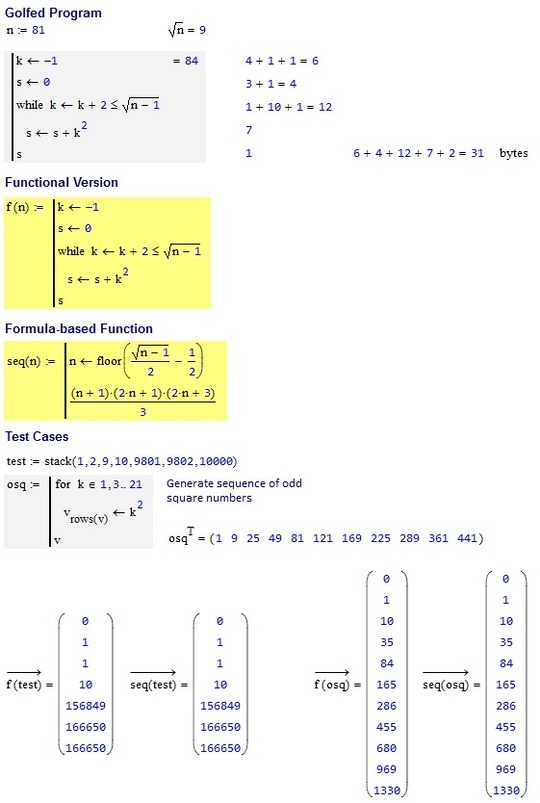19
2
Write a program or function to output the sum of the odd square numbers (OEIS #A016754) less than an input n.
The first 44 numbers in the sequence are:
1, 9, 25, 49, 81, 121, 169, 225, 289, 361, 441, 529, 625, 729, 841, 961, 1089,
1225, 1369, 1521, 1681, 1849, 2025, 2209, 2401, 2601, 2809, 3025, 3249, 3481,
3721, 3969, 4225, 4489, 4761, 5041, 5329, 5625, 5929, 6241, 6561, 6889, 7225, 7569
The formula for the sequence is a(n) = ( 2n + 1 ) ^ 2.
Notes
- Your program's behaviour may be undefined for
n < 1(that is, all valid inputs are>= 1.)
Test cases
1 => 0
2 => 1
9 => 1
10 => 10
9801 => 156849
9802 => 166650
10000 => 166650

1Neither of the close reasons on this are valid reasons to close a challenge... – Mego – 2016-04-24T05:29:11.883